UTOPIA – Season One
A group of young adults get a hold of a cult underground graphic novel, which not only pins them as a target of a deep state organisation, but burdens them with the task of saving the world.
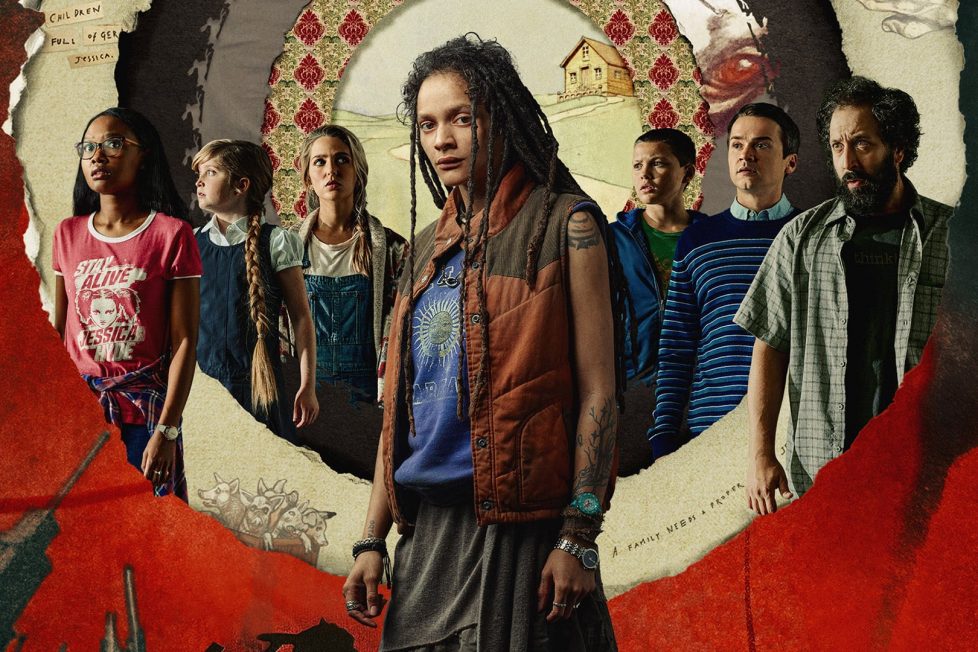
A group of young adults get a hold of a cult underground graphic novel, which not only pins them as a target of a deep state organisation, but burdens them with the task of saving the world.


Gillian Flynn was originally set to remake the UK television series Utopia with David Fincher, who directed the adaptation of her novel Gone Girl (2014). The project was set to become a major series for HBO, reuniting Fincher with actress Rooney Mara (Girl with the Dragon Tattoo), but Fincher left over budgetary disagreements. Flynn chose to keep going alone and Amazon financed a cheaper version, which has duly premiered in a year that finds the world living through a pandemic that’s worryingly real.
Much like the Channel 4 original, which ran for two series between 2013-14, Utopia introduces us to a group of young adults who share a fascination with a peculiar graphic novel called Dystopia. There’s Becky Todd (Ashleigh LaThrop) who suffers from seizures, doomsday prepper Wilson Wilson (Desmin Borges), shy geek Ian Ackerman (Dan Byrd), and winsome Samantha (Jessica Rothe). After a fabled sequel to Dystopia is found by a couple who move into an abandoned house, the loose pages of Utopia become a hot commodity and a private auction is held at a hotel hosting a comic-book convention. However, unbeknownst to them all, the urban myth that both hand-drawn comics predict the future is proven accurate, as the friends are drawn into a deadly conspiracy.
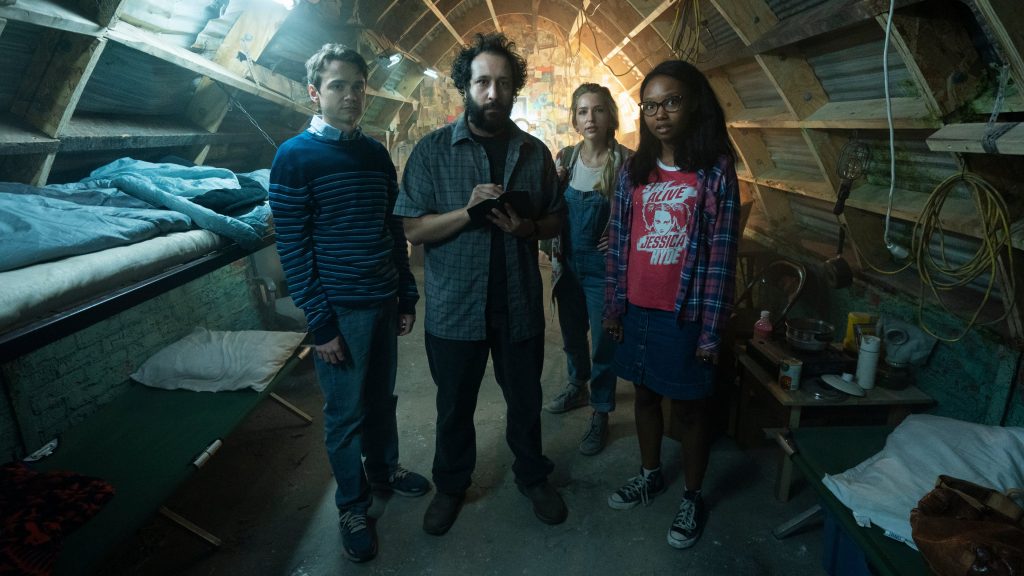
The setup of Utopia will be familiar to British viewers of the original Channel 4 series, with a few tweaks and improvements. The way Utopia’s artwork hides various clues and cyphers is better explained and utilised, with a welcome focus on its strange drawings and their hidden meanings. I don’t recall the UK series giving this aspect of Utopia as much attention, so I loved how Flynn’s scripts delve into ‘the hook’ of the series with more enthusiasm and skill. It helps bind you to the characters when presented with a puzzle to obsess over with them.
But there are other changes to this remake which are of mixed success. Perhaps because there are eight episodes instead of six, matters are complicated with the introduction of two new characters with their own subplots. Firstly, there’s pharmaceutical genius Dr Kevin Christie (John Cusack), whose laboratory is struggling to launch a miracle food; and secondly, there’s a virologist called Michael Stearns (Rainn Wilson) who comes to believe a lethal virus he discovered has been released into the US population. Neither character was part of the UK Utopia, so they represent a sizeable chunk of the season’s story that isn’t as predictable.
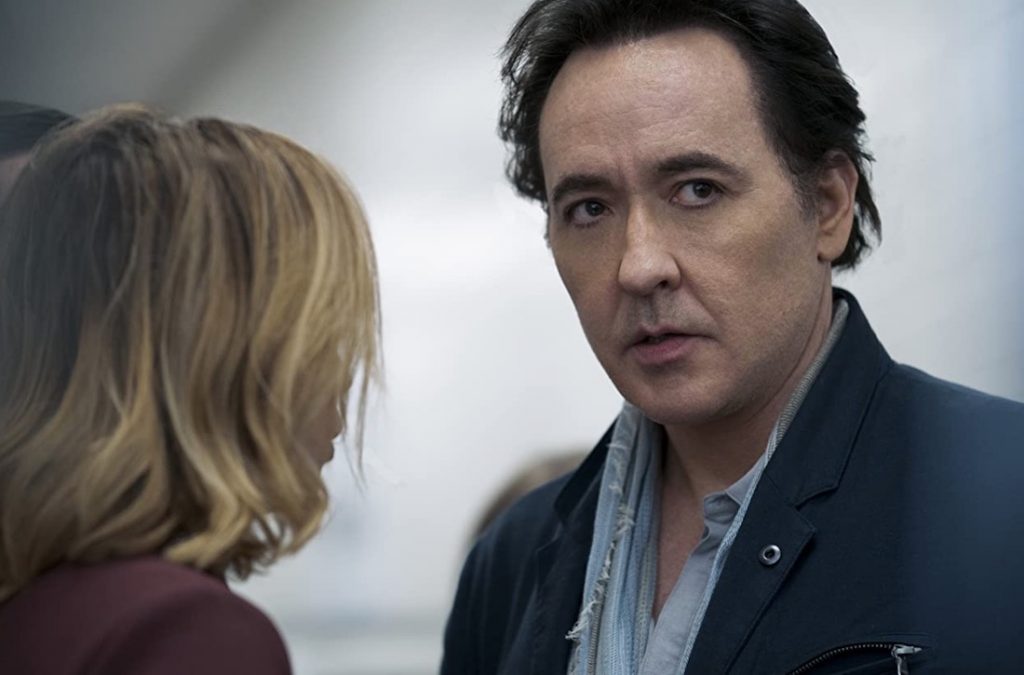
Two of the most memorable characters from the 2013 series were Arby and Jessica Hyde; a man-child assassin and eccentric fugitive, respectively. Neil Maskell was particularly spine-tingling as Arby, being such a contradiction in terms of being a highly-trained hitman who behaves like a lobotomised six-year-old. Arby’s monotone enquiry “where is Jessica Hyde?” became Utopia‘s catchphrase. Both characters are still part of the US remake, although the new Arby (Christopher Denham) is more of a brainwashed nerd programmed to kill, and Jessica (Hellboy’s Sasha Lane) is more of a gutsy freedom-fighter type than a spaced-out survivor. Both characters are still the highlights of the remake, but for slightly different reasons… although Denham’s own “where is Jessica Hyde?” refrain doesn’t chill the bone like Maskell could.
The broad sweep of the season’s arc is much the same, but the US Utopia plays things safer. The British series was unlike anything else on television, with a vivid colour palette (particularly its signature neon yellow) and a peculiar soundtrack by composer Cristobal Tapia de Veer that was often just a background of electronic squawks and croaks. Amazon’s Utopia isn’t unstylish and bland, but it’s more conventionally pretty. The original echoed a twisted graphic novel in its stark production design and retina-burning colours (a template set by talented director Marc Munden), but there’s less of that in Amazon’s remake. The flavour’s there but it’s been diluted so Utopia now feels like a standard outbreak thriller with quirky elements. Jeff Russo’s music pays homage to de Veer’s gonzo score occasionally but, for the most part, it’s less memorable and enveloping.
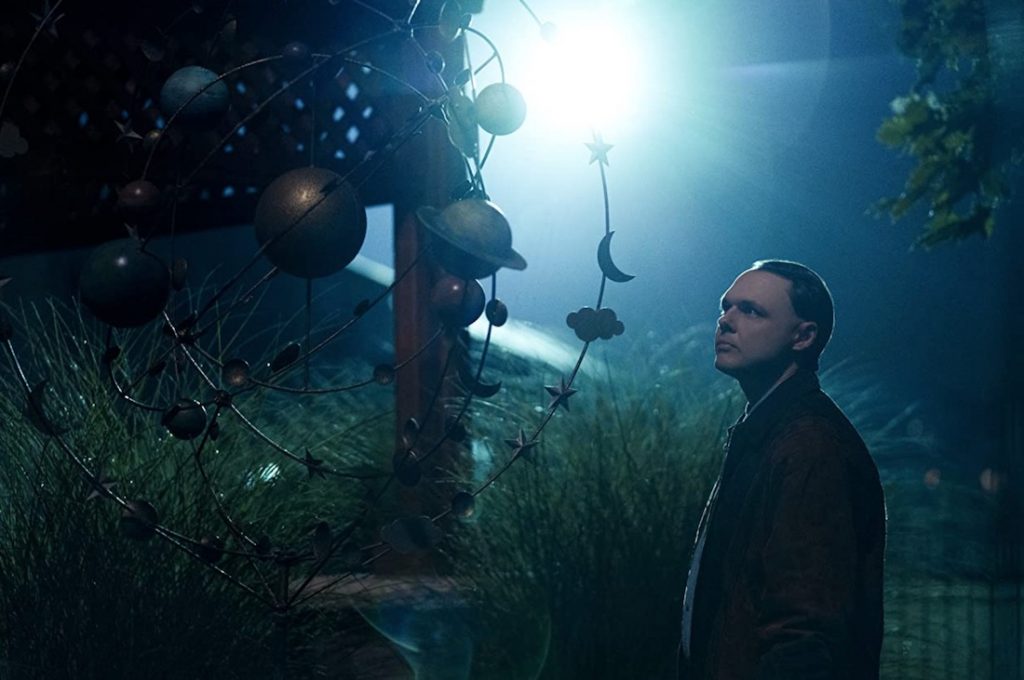
Gillian Flynn’s reinvention of Dennis Kelly’s Utopia is ultimately a weak imitation that loses what made it special and strange. But the upside of making it more palatable for the mainstream is how easier the story is to follow. There were aspects of the British Utopia that were needlessly confusing and poorly explained, frankly, which resulted in periods where attention could wandered and you’d be lost in its tripped-out vibe but drifting away from the story and characters. This clearly affected the majority of British viewers, as Utopia was cancelled due to poor ratings and failed to reach a satisfying conclusion. I’m sure Flynn realised her Utopia needed to be less perplexing to avoid the same fate (even in the more forgiving streaming world), so her story’s easier to follow and there are more times to enjoy the characters as people instead of chess pieces.
While not as edgy as the UK show (which received 44 complaints about its violence and language to Ofcom), Utopia certainly isn’t toothless. The infamous ‘eye torture’ sequence is reprised (only nastier), and there’s plenty of violence and bloodshed. It’s just presented in a more typical manner, so you don’t feel like you’re in the hands of maverick filmmakers pushing the envelope. One wonders what David Fincher would have brought to the table, had he been allowed to direct every episode with a small fortune at his disposal with less creative limitations on HBO. It does feel like Flynn’s approach is a compromised vision, as the first two episodes (which likely had more of Fincher’s fingerprints on them during the development process) are clearly the best of the eight.
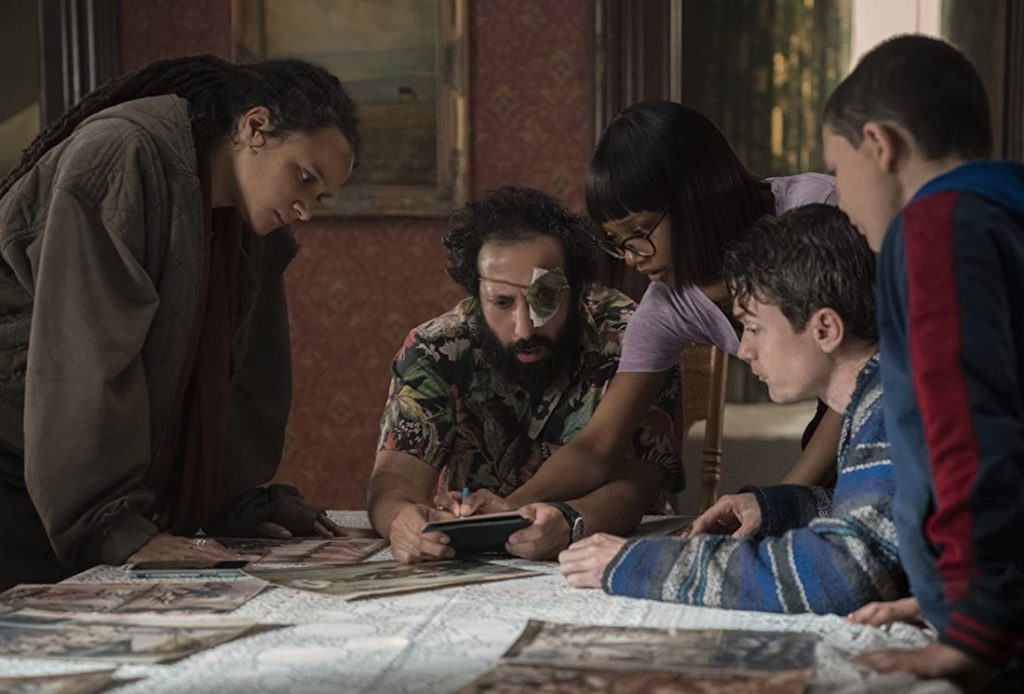
Still, whatever its flaws, Utopia will be judged more for its timing than departure from the source material. Deadly pandemics were almost sci-fi territory in 2013, but now we’re living through the worst one in a century as this remake dropped online. That makes it more of a hot topic issue for viewers, but people are also knowledgeable about the science and notice the stupid things Utopia expects us to swallow about vaccines and how a country would respond to a contagion. And it perhaps doesn’t help that being an anti-vaxxer might save your life in Utopia, when that’s not exactly a helpful message to be spreading right now… even in fiction.
Whether or not Utopia benefits from accidentally echoing real-world events, or not, will be a personal judgement. But I think the consensus will be it’s not as easy to be entertained by a doomsday pandemic thriller playing fast-and-loose with science, when you may have suffered real loss to a lethal disease recently. Maybe it’s one to stream in a few year’s time with some distance from the reality, in the same way films featuring city-wide destruction weren’t in vogue after 9/11.
USA | 2020 | 393 MINUTES • 8 EPISODES | 16:9 HD | COLOUR | ENGLISH

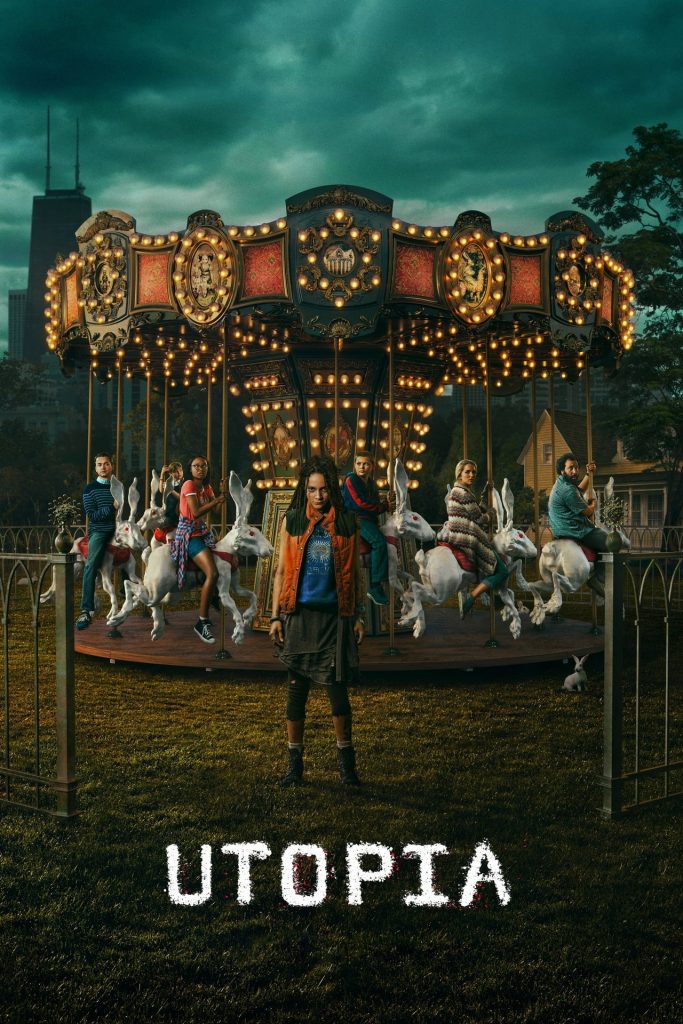
writer: Gillian Flynn (adapting the UK TV series created by Dennis Kelly).
directors: Toby Haynes, Susanna Fogel, Courtney Hunt & J.D Dillard.
starring: John Cusack, Ashleigh LaThrop, Dan Byrd, Desmin Borges, Jessica Rothe, Christopher Denham, Javon Walton, Farrah Mackenzie, Cory Michael Smith, Jeanine Serralles, Rainn Wilson & Sasha Lane.
